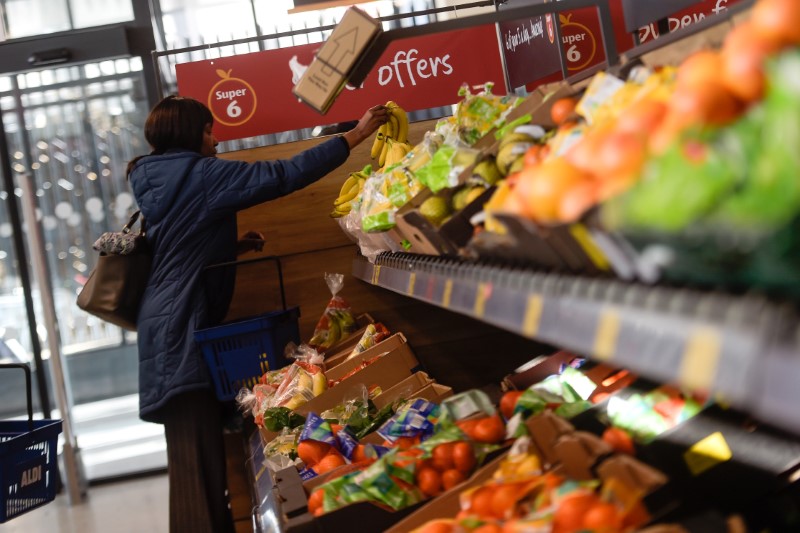LONDON (Reuters) - Consumers in Britain were their most confident in 10 months in March, according to a survey which suggested that they took comfort from a fall in inflation and this month's Brexit transition deal.
The headline gauge of consumer confidence, compiled by market research firm GfK for the European Commission, rose to -7 from -10 in February.
The median forecast in a Reuters poll of economists had pointed to another reading of -10.
"The prospect of wage rises finally outstripping declining inflation, high levels of employment with low-level interest rates, and finally some movement on the Brexit front appear to have boosted our spirits," Joe Staton, head of experience innovation UK at GfK, said in a statement.
Prime Minister Theresa May this month secured an outline deal to keep Britain's access to the European Union's single market unchanged for 21 months after Brexit in March next year.
That political breakthrough was accompanied by economic data that showed a pickup in the pace of wage growth and inflation continuing its fall, having jumped after the Brexit vote.
However, GfK's consumer confidence measure remained in negative territory, where it has been since early 2016, and another survey published on Thursday found households turned a bit more pessimistic in March.
Opinion polling firm YouGov said its index edged down one point to 107.7, the first fall since November, although households reported an improvement in their finances.
Separately on Thursday, the Confederation of British Industry, an employers group, said growth in Britain's private sector slowed in the first three months of the year.
The survey of 650 firms showed the balance of companies reporting a rise in output at +8 percent, down from +20 percent in the three months to February, but growth was expected to pick up in the second quarter, the CBI said.

The Bank of England said last week it expected heavy snowfall in February and March meant overall economic growth would a bit slower than it had previously forecast.